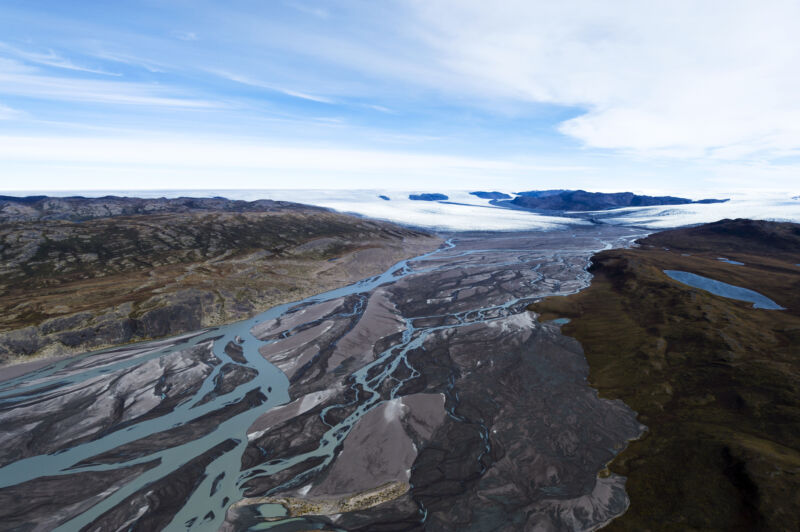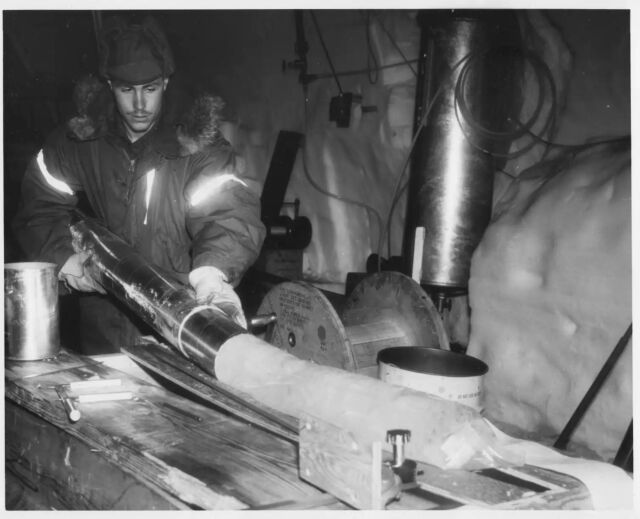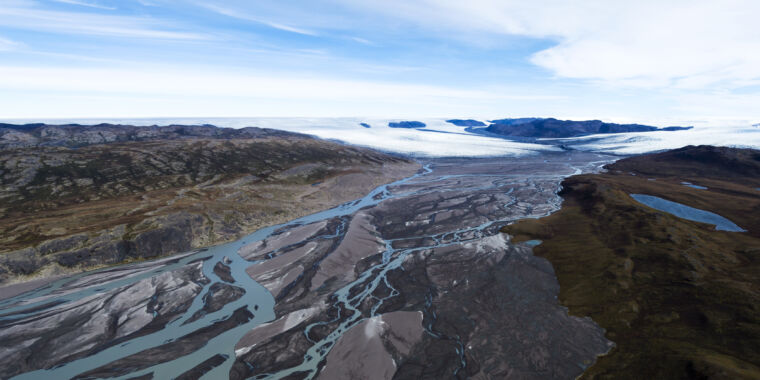
About 400,000 years ago, large parts of Greenland were ice-free. Scrubby tundra basked in the sun’s rays on the northwestern highlands of the island. There is evidence that a forest of spruce trees, buzzing with insects, covered the southern part of Greenland. The global sea level was much higher then, between 20 and 40 feet above current levels. All over the world, land where hundreds of millions of people now live was under water.
Scientists have known for some time that the Greenland Ice Sheet largely disappeared sometime in the past million years, but not exactly when.
In a new study in the journal Science, we determined the date using frozen soil recovered during the Cold War from under a nearly one-mile-thick section of the Greenland ice sheet.
A brief look at the evidence under the Greenland ice sheet and the lessons to be learned.
The timing — about 416,000 years ago, with largely ice-free conditions lasting as much as 14,000 years — is important. At the time, Earth and its early humans were experiencing one of the longest interglacial periods since ice sheets first covered high latitudes 2.5 million years ago.
The length, magnitude and effects of that natural warming can help us understand the Earth modern humans are creating now for the future.
A world kept under the ice
In July 1966, U.S. Army scientists and engineers completed a six-year effort to drill through the Greenland ice sheet. The drilling took place at Camp Century, one of the most unusual military bases. It was nuclear powered and consisted of a series of tunnels dug into the Greenland ice sheet.
The drilling site in northwest Greenland was 220 kilometers from the coast and was under an ice cover of 1300 meters. Once they reached the bottom of the ice, the team continued to drill 10 feet into the frozen, rocky ground below.

US Army
In 1969, geophysicist Willi Dansgaard’s analysis of Camp Century’s ice core first revealed the details of how Earth’s climate had changed dramatically over the past 125,000 years. Prolonged cold ice ages in which the ice expanded rapidly gave way to warm interglacial periods in which the ice melted and sea levels rose, flooding coastal areas around the world.
For nearly 30 years, scientists paid little attention to Camp Century’s 12 feet of frozen ground. One study analyzed the pebbles to understand the bedrock beneath the ice sheet. Another intriguingly suggested that the frozen ground preserved evidence of a warmer time than now. But because there was no way to date the material, few people paid attention to these studies. By the 1990s, the frozen soil core had disappeared.
Several years ago, our Danish colleagues found the lost soil buried deep in a freezer in Copenhagen, and we formed an international team to analyze this unique frozen climate archive.
In the top sample, we found perfectly preserved fossil plants – positive evidence that the land well below Camp Century had been ice-free at some point in the past – but when?

